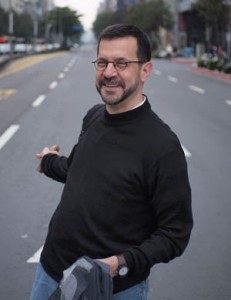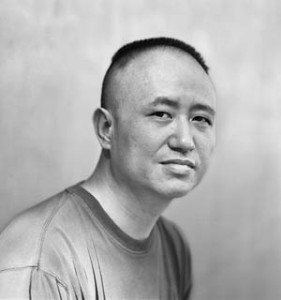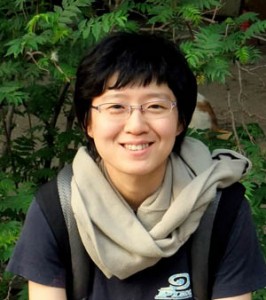 Chinese cinema is generational. Zhang Yimou and Chen Kaige captured the world’s attention in the 1980s as part of the Fifth Generation of Chinese filmmakers, while Jia Zhang-ke, with a more radically disjunctive and gritty style of filmmaking, led the Sixth Generation that emerged in the 1990s. Today, there is a renaissance of independent filmmaking in China, called by some the “digital” or “dgeneration” because filmmakers’ use of inexpensive DV technology has allowed them to bypass official production and distribution channels. Many of the films offer remarkably critical examinations of China’s recent history and its rapidly urbanizing society, are stylistically adventurous in their blending of documentary and fiction, and are earning accolades at film festivals around the world.
Chinese cinema is generational. Zhang Yimou and Chen Kaige captured the world’s attention in the 1980s as part of the Fifth Generation of Chinese filmmakers, while Jia Zhang-ke, with a more radically disjunctive and gritty style of filmmaking, led the Sixth Generation that emerged in the 1990s. Today, there is a renaissance of independent filmmaking in China, called by some the “digital” or “dgeneration” because filmmakers’ use of inexpensive DV technology has allowed them to bypass official production and distribution channels. Many of the films offer remarkably critical examinations of China’s recent history and its rapidly urbanizing society, are stylistically adventurous in their blending of documentary and fiction, and are earning accolades at film festivals around the world.
Cinema Pacific’s first Festival Fellow, Shelly Kraicer, will be our guide through the current independent film scene in China. Kraicer is a Beijing-based film critic who publishes widely about Chinese film and is also a programmer of East Asian films for the Vancouver Film Festival. In addition to introducing and moderating six festival film discussions, Kraicer will be co-teaching with Professor David Li a two-week course on Chinese Independent Film: From the Sixth to the Digital Generation, open to students and adult learners.
LIU JIAYIN presents OXHIDE AND OXHIDE II
The festival is honored to be bringing the sensational young Chinese director, Liu Jiayin, whose inventive digital films, Oxhide and Oxhide II, have earned numerous festival awards and ecstatic praise from film critics (i.e, David Bordwell’s comment: “every festival that’s serious about the art of cinema should pledge to show Oxhide II”). Liu Jiayin was born in Beijing, China in 1981. She completed her debut feature Oxhide (2005) while finishing her Master’s degree at the Beijing Film Academy. Oxhide won the FIPRESCI award at the Berlin Film Festival, Golden DV Award at Hong Kong International Film Festival, and Dragons and Tigers Award at Vancouver Film Festival. Her follow-up film Oxhide II (2009) was also well received and was featured in the Directors’ Fortnight at Cannes. She is currently a professor of screen writing at the Beijing Film Academy, and is developing the final part of her trilogy, Oxhide III.
ZHU WEN presents THOMAS MAO
 Zhu Wen is sometimes considered a member of the Sixth Generation of Chinese filmmakers, and has been openly critical of the exoticism of his Fifth Generation predecessors. Having made the first digital narrative feature in China, Seafood (2001), he led the way for the Digital Generation. Before he turned to film, Zhu Wen was a renowned writer, a leader of the rebellious, post-socialist “newly born generation” of Chinese fiction writers; an English translation of his short stories, I Love Dollars, was recently published by Columbia University Press. The bawdy and surprising Seafood, which won the Grand Jury Prize at the 58th Venice Film Festival, announced his emergence as a major filmmaker. South of the Clouds (2003) won “Asia’s Best New Director” prize at the Shanghai Film Festival. Thomas Mao, his third feature, is a mind-tripping mix of genres, and a hilarious picture of clashing cultures; says David Bordwell: “It’s a pleasure to see a movie in which you can’t imagine what will come next.”
Zhu Wen is sometimes considered a member of the Sixth Generation of Chinese filmmakers, and has been openly critical of the exoticism of his Fifth Generation predecessors. Having made the first digital narrative feature in China, Seafood (2001), he led the way for the Digital Generation. Before he turned to film, Zhu Wen was a renowned writer, a leader of the rebellious, post-socialist “newly born generation” of Chinese fiction writers; an English translation of his short stories, I Love Dollars, was recently published by Columbia University Press. The bawdy and surprising Seafood, which won the Grand Jury Prize at the 58th Venice Film Festival, announced his emergence as a major filmmaker. South of the Clouds (2003) won “Asia’s Best New Director” prize at the Shanghai Film Festival. Thomas Mao, his third feature, is a mind-tripping mix of genres, and a hilarious picture of clashing cultures; says David Bordwell: “It’s a pleasure to see a movie in which you can’t imagine what will come next.”
1428
The winner of the Best Documentary prize at the 2009 Venice Film Festival, 1428 portrays the struggle of the townspeople of Beichuan as they attempt to recover from the Great Sichuan earthquake, which struck China at exactly 14:28 on May 12, 2008. Director Du Haibin traveled to the hardest hit town, Beichuan, ten days after the quake and again seven months later. He points his lens towards the town’s ghostly survivors who search desperately for missing loved ones while suffering from a lack of food, housing, and power. Unlike a typical documentary format with formal interviews and voiceover narration, Du interviews survivors while they go about their lives, attempting to recover what they have lost. Shelly Kraicer of the Vancouver International Film Festiva saysl: “Subtle, scrupulously non-dogmatic, compassionate, and critical, Du’s film is a rich, open text: it grants the audience full autonomy to judge what they see for themselves.”

